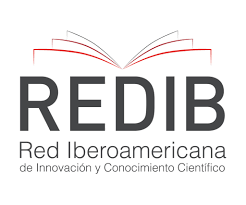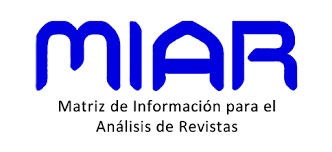Fruitfulness and Personal Identity in family ties. The role of the logic of gift in them from a perspective of motherhood
DOI:
https://doi.org/10.51743/cpe.251Keywords:
corporeality, identity, freedom, logic of gift, bondsAbstract
During gestation it is evident that the child is radically dependent on the mother. Feminine corporeality seen in its full transcendence, and not in a merely biological sense, allows us to understand the affective dynamic that is generated between the subjects involved in fertilization and its determining influence on the formation of their own identity. Through the logic of self-giving that manifests itself in an existential way in the corporeality of the woman and the meaning with which she accepts the care and promotion of this new life, the man “learns” his own paternity. The bond that is generated between the parents and with respect to the child implies a permanent character that matures over time and requires true love to respond adequately to the union that is generated; the development of the ties and their various stages, involving a back-and-forth movement between autonomy and alterity, constitute the gift of the family as a communion capable of contributing to the edification of the common good in society because, within this relational weave, one learns over time to love.
Downloads
References
Benedicto XVI. (2009). Carta Encíclica Caritas in veritate.
Benlloch, J. (2021). Teoría del apego, paternidad y trascendencia. En M. Lafuente Gil et al. (eds.). Antropología Cristiana y Ciencias de la Salud Mental (pp. 345-354). Dykinson. DOI: https://doi.org/10.2307/j.ctv1ks0fr6.33
Botturi, F. (2004). Etica degli affetti? En F. Botturi y C. Vigna (a cura di). Affetti e legami (pp. 37-64). Vita e Pensiero.
Cid Vázquez, M. T. (2020). La superación de la autorreferencialidad del bien común en las fuentes wojtylianas. Cuadernos de pensamiento, (33), 15-48. DOI: https://doi.org/10.51743/cpe.60
Concilio Vaticano II. (1965). Constitución Pastoral Gaudium et spes.
Donati, P. P. (2017). Generare un figlio. Che cosa rende umana la generatività?. Cantagalli.
Fernández, V. (2020). Libertad como autodeterminación. Bases para la discusión de un modelo de formación docente (tesis de doctorado aún no publicada, Universidad Anáhuac México). Repositorio Institucional UA 2009765090005016.
https://anahuac.primo.exlibrisgroup.com/permalink/52ANAHUAC_INST/12ghpp2/alma993791080305016
Francisco. (2013). Carta encíclica Lumen fidei.
Francisco. (2020). Carta apostólica Patris corde.
Granados, J. (2013). Generatività: chiave per una sintesi teológica. Anthropotes, (29), 99-122.
Granados, J. (2010). “Trajo toda la novedad, al traerse a sí mismo”: apuntes para una teología de lo nuevo. En J. J. Pérez-Soba y E. Stefanyan (a cura di). L’azione, fonte di novità. Teoria dell’azione e compimento della persona: ermeneutiche a confronto (pp. 285-303). Cantagalli.
Grygiel, S. (2002). Extra “communio personarum” nulla filosofía. Lateran University Press.
Grygiel, S. (2003). El sentido de sufrimiento en un mundo secularizado. Humanitas: Revista de antropología y cultura cristianas VIII, (29), 30-45.
Guardini, R. (1997). Las etapas de la vida. Palabra.
Grygiel, M. y Chávez, M. J. (2021). Madurez afectiva, reconocimiento del vínculo y alteridad. En M. Lafuente Gil et al. (eds.). Antropología Cristiana y Ciencias de la Salud Mental (pp. 339-344). Dykinson. DOI: https://doi.org/10.2307/j.ctv1ks0fr6.32
Juan Pablo II. (1979). Carta encíclica Redemptor hominis.
Juan Pablo II. (1988). Carta apostolica Mulieris dignitatem.
Juan Pablo II. (1994). Carta a las familias.
Juan Pablo II. (2000). Hombre y mujer los creó. Cristiandad.
Melina, L. (2011). Analogia dell’amore. En E. Molina y T. Trigo (eds.). E. MOLINA - T. TRIGO (eds.), Matrimonio, familia, vida. Homenaje al Prof. Dr. Augusto Sarmiento (pp. 69-76). EUNSA.
Pérez-Soba, J. J. (2014). Creer en el amor. Un modo de conocimiento teológico. BAC.
Pérez-Soba, J. J. (2018). Vivir en Cristo, la fe que actúa por el amor. Manual de Moral fundamental. BAC.
Ratzinger, J. (1989). Uno sguardo teologico sulla procreazione umana. En Aa. Vv. Bioetica, Un’opzione per l’uomo. Iº Corso Internazionale di Bioetica. Atti. (pp. 197-213). Jaca Book.
Sacristán, R. (2020). Movidos por el amor. Estudio del dinamismo afectivo. Universidad San Dámaso.
Scola, A. (1998). Il Mistero nuziale. 1. Uomo-Donna. Uomo-donna. Pul - Mursia.
Scola, A. (2000). Il Mistero nuziale. 2. Matrimonio-Famiglia. Pul - Mursia.
Spaemann, R. (2000). Personas. Acerca de la distinción entre “algo” y “alguien”. EUNSA.
Downloads
Published
How to Cite
Issue
Section
License
The author reserves the rights (copyright) of the published works, and the journal encourages and allows their reuse, from the preprint. The works are published in the electronic edition of the journal under a license "Creative Commons Attribution / Attribution-NonCommercial 4.0 International Public License - CC BY-NC 4.0", and can be copied, used, disseminated, transmitted and publicly exhibited.
The author / s partially transfer the property rights (copyright) of this work for the printed and online editions, provided that:
- The authorship and original source of its publication (magazine, publisher and URL of the work) is cited.
- Are not used for commercial purposes.
- The existence and specifications of this user license are mentioned.
It also declares to have respected the ethical principles of research and to be free from any conflict of interest.
"C.P.E." encourages the authors and the scientific community to the maximum promotion and dissemination of the works in their final version through:
1) Your list of contacts (emails) and social networks (Facebook, Twitter, LinkedIn ...).
2) Institutional repository of your University and public repositories (Mendeley, Cosis ...).
3) Scientific social networks (ResearchGate, Academia.edu, Kudos ...).
4) Personal or institutional website, blog, etc.
5) Google Scholar, ORCID, ResearchID, ScopusID, Dimensions, PlumX ...
6) Printed copies purchased directly and sent to specialists for reading and subsequent citation if appropriate.




















1.png)
1.png)

1.png)





.png)
.png)

.png)
1.png)
1.png)
